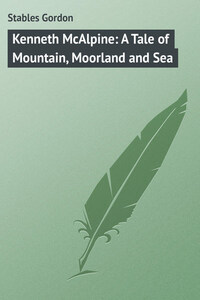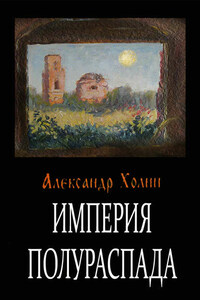Chapter One.
Rowan-Tree Cottage
“The merry homes of England!
Around their hearths by night,
What gladsome looks of household love
Meet in the ruddy light!
There, woman’s voice flows forth in song
Or childhood’s tale is told,
Or lips move tunefully along
Some glorious page of old.”
Mrs Hemans.
“You’re my Maggie May, aren’t you?”
There was a murmured “Yes,” and a tired and weary wee head was laid to rest on my shoulder.
We were all sitting round the log fire that burned on our low hearth, one wild night in winter. Outside such a storm was raging as seldom visits the southern part of these islands. It had been hard frost for days before, with a bright and cloudless sky; but on the morning of this particular day the blue had given place to a uniform leaden grey. The cloud canopy lowered, the horizon neared, then little pellets of snow began to fall no larger than millet-seeds, till they covered all the hard ground, and powdered the lawn, and lay on the laurel-leaves, and on the ivy that the sparrows so love. Gradually these pellets gave place to broad dry flakes of snow.
“How beautiful it was, falling so silently all day long,
All night long, on the mountains, on the meadows,
On the roofs of the living, on the graves of the dead.”
Yes, silently it had come down, and by sunset it was some inches deep on every tree; and very lovely were the Austrian pines and spruce-firs on the lawn, with their branches bending earthwards under their burdens of snow.
But later in the evening a change had come over the spirit of the scene, and a wild wind had begun to blow from the east. It blew first with a moaning, mournful sound, that saddened one’s heart to listen to; but soon it gathered force, and shrieked around the cottage, and tore through the leafless branches of the tall lime-trees with a noise that made both Frank and me think of gales and storms in the wide Atlantic.
Little Ida, our youngest tottie, was sitting on the hearth painting impossible birds of impossible colours, and using Sir John the Grahame’s back as an easel. She shook her paint-brush at me as she remarked seriously, “She is my Maggie May, and ma’s Maggie May, and Uncle Flank’s Maggie May, and Sil John the Glahame’s Maggie May.” My wife looked up smiling from her sewing.
“Quite right, child,” she said, “she is all our Maggie Mays.”
“O! ma,” remonstrated Ida, “that’s not dood glammer. There touldn’t be two Maggie Mays, tould there, pa?”
“Quite impossible,” I replied; “but how would you say it?”
“I would say – ‘She is all of us’s Maggie May.’”
Having put our grammar to rights, Ida went quietly on painting.
Maggie May, it will be gathered from the above, was a pet in the family circle: she certainly was at present, though not the baby either.
The facts of the case are as follows: Maggie May was an invalid. Not very long before this she had been lying on a bed of pain and illness, from which none of us had expected to see her rise. She was but a fragile flower at the best, but as her recent indisposition had been partly attributable to me, I had tenfold interest in getting her well and strong again.
It happened thus: our bonnie black mare Jeannie has been allowed to have a deal of her own way, and never starts anywhere till she has had a couple of lunch biscuits and a caress. After this she will do anything. I had driven the two girls over to a farm about eight miles from our cottage, and on the way back had occasion to call on a friend. “Stand quiet,” I said; “Jeannie, I won’t be long, and I’ll bring you a biscuit.” Jeannie tossed her tail and moved her ears knowingly as much as to say, “All right, master. Don’t forget. A bargain is a bargain.”
But woe is me! I did forget, completely; and when I jumped into the phaeton Jeannie refused to budge.
Well, I suppose I lost my temper. I flicked her with the whip. Then the mare lost hers. She screamed with rage, and next moment she was tearing along the road with the bit in her teeth at a fearful speed. All my efforts to control the speed of the runaway were in vain. Little Ida clung in terror to me; Maggie May sat firm, but pale.
On we rushed, luckily meeting nothing on the road. A whole mile was speedily pat behind us. But half a mile further on was the dismal dell called Millers’ Dene, with the descent to it dangerous even at a walking pace. To attempt to take it, at the rate we were now moving, would be certain destruction. Could I check the mare before we reached the brow of the hill? I tried my utmost, but utterly failed.
Then my mind was made up. There were broad hedges at each side of the road, and no ditch between.
Summoning all my calmness and strength then, for a supreme effort, and just as we had reached the end of the level road, and the dreadful dene (a glen or ravine) lay deep down before us, with a sudden wrench I swerved the mare off the road and put her at the hedge.
It was a desperate remedy, but so far successful, and the only one really hurt was poor Maggie May.
It was one of those adventures one never forgets.
The child had received a terrible shock, and for weeks hovered ’twixt death and life. No wonder then that we made much of her, now we had her back amongst us once again; and that each of us did our best to nurse back the life and joy she had been almost bereft of for ever.














